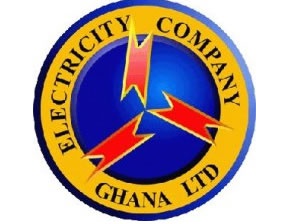The problem-child of the power sector, the Electricity Company of Ghana, got a lot of flak from members of the Public Accounts Committee of Parliament on Wednesday as William Hutton Mensah, Managing Director, could not tell the committee the number of bank accounts the company operates across the country.
The MPs wondered whether the company was in full control of its finances after the MD said, “We have so many accounts scattered across the country,” and added later,“I must say that for now we cannot give the specific number of accounts we have, but we can provide that data later.”
The ECG was reacting to matters captured in the 2011 Audit-General’s Report which indicated that some of the accounts of the company -- some of which dated back to 2005 -- were “dormant” and “unidentified”, and from which monies had been debited.
“It does not show proper management of your money,” said Alban Sumana Bagbin, MP for Nadowli Kaleo constituency in the Upper West Region.
Three “unidentified” accounts were named as holding monies in excess of GH¢100,000. Another GH¢296,263 was said to be outstanding in an account lodged with the Shai Rural Bank and meant to be transferred to Accra from as far back as September 2010.
ECG’s Director of Finance Frank Annor Kwarfo explained that the GH¢100,000 has been retrieved with interest paid on same. In the case of the Shai Rural Bank, however, he said it has been agreed that the bank pays the money in installments and that the interest is now being negotiated.
“You have several accounts across the country, and if one reconciliation takes six years to sort out, then what happens to other reconciliations? You have monies in unidentified accounts and you keep on increasing our bills because you need money. Is that fair to us?” said Kwaku Agyeman Manu, MP for Dormaa West and Chairman of the Committee.
He said the ECG’s balance sheet does not portray it as a company that is giving Ghana value for money, adding that something needs to be done about the way the company is being run.
“You cannot run an organisation like ECG with non-current assets running to the tune of about GH¢1.6million, current assets running to the tune of about GH¢946million, total assets of GH¢2.5billion, and then you tell us in your profit and loss statement that at the end of the year your profit after tax is GH¢1million.
Trading with assets to the tune of GH¢2.5 billion and your profit is GH¢1 million?” the exasperated Chairman said, adding that the likes of ECG make it difficult to defend the idea of state-run enterprises.
Indeed, the World Bank in a recent report on the country’s power sector was more critical of the ECG than the other entities, VRA and GRIDCo, in the electricity value-chain.
“ECG is a large, top-heavy, over-centralised organisation with significant weaknesses in its management, corporate governance, and institutional culture that call for a profound change,” the Bank said.
Deputy Minister for Energy and Petroleum, John Abu Jinapor, argued at the PAC hearing that much as he agreed with the criticism of ECG, the tariffs paid the company also have to be looked at.
“While we crack the whip on ECG, this may sound quite bitter, but the truth is that we must also support them. If for the past two years there has not been any increment in tariffs, it puts a burden on them,” he said.
Street-lights throttling its finances
Meanwhile, the ECG says street lights impose a huge financial burden on its operations, with the street-light levy paid by consumers only able to meet 0.04 percent of the cost for powering the lights.
In 2012 the ECG spent GH¢55,498,573 to power the lights, but realised only GH¢23,215 from the levy which is charged at a rate of 0.0001 per kilowatt hour consumed. In 2009, only GH¢14,354 was realised out of GH¢18,330,950, which was the cost of keeping the lights on.
A non-residential customer who consumes 1,468 kilowatt hours on average per month, equivalent to a total bill of more than GH¢607.10 at the current tariff, pays only 15 pesewas as street-light levy.
The company’s Head of Public Relations, Edward Boateng, told the B&FT in an interview that there is a need to amend the Electricity (Special Levies) Act, 1995 to empower the ECG to increase the levy to match the cost of powering the lights.
“The amount being charged as street-light levy is woefully inadequate. We are talking about a law passed about 20 years ago. Since the law was passed, the number of ceremonial streets in the country has increased significantly from the previous figure of 27; yet the law maintains provision for only 27 ceremonial street-lights,” he said.
“There’s a serious deficit and something must done about it. When we started, the levy was enough. But now the city is sprawling and more developments are being done.”
Debate is currently raging over the ECG and other utilities’ request for higher consumer tariffs, which the service providers say is urgent if they are to see a turnaround in their ailing finances. The ECG is requesting an increase of 166 percent in the power tariff, which has not been adjusted for almost two years.
Labour unions and companies want the ECG to cut its operational losses, which remain above one-fifth of all power distributed, even as the utility seeks a better tariff. A review of the street-light levy will improve the ECG’s financial position, Mr. Boateng said, since it pays the VRA for the power consumed by the street-lights despite the considerable deficit in the levy.
Responding to the issue of faulty street-lights and their total absence in many neighbourhoods, Mr. Boateng said the provision and maintenance of the lights does not fall within the mandate of the ECG.
“We are not in charge of constructing the lights; it’s the various city authorities who are supposed to do that with the aid of government. The Special Levies Act (1995) only mandates the ECG to collect the street light levies since we deal directly with consumers.”
According to the provisions of the Local Government (Commencement) Instrument, 2009 (L.I. 1961), local government authorities are responsible for the development, installation, ownership and maintenance of street-lights throughout the country.
Business News of Friday, 23 August 2013
Source: B&FT
ECG fumbles on “scattered” accounts













